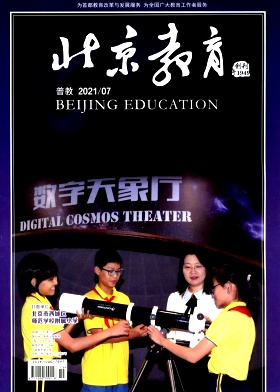淺談中學(xué)英語時態(tài)的用法
未知
1.一般現(xiàn)在時的用法
1)表示經(jīng)常性,習(xí)慣性的動作;表示現(xiàn)在的狀態(tài),特征 和真理。句中常用often, usually, every day等時間狀語,例如:
He goes to school every day. (經(jīng)常性動作)
He is very happy.(現(xiàn)在的狀態(tài))
The earth moves around the sun. (真理)
2)在時間狀語從句和條件狀語從句中,用現(xiàn)在時表示將來,例如:
If you come this afternoon, we’ll have a meeting.
When I graduate, I’ll go to the countryside.
Don’t get off the bus until it has stopped.
3)有時這個時態(tài)表示按計劃,規(guī)定要發(fā)生的動作。(句中都帶有時間狀語詞)但僅限于少數(shù)動詞,如:begin come, leave, go, arrive, start, stop, return, open, close等,例如:
The meeting begins at seven.
The train starts at nine in the morning.
4)表示狀態(tài)和感覺的動詞。如be, like, hate, think, remember, find, sound等常用一般現(xiàn)在時。例如:
I like English very much.
The story sounds interesting.
5)書報的標(biāo)題,小說等情節(jié)介紹常用一般現(xiàn)在時。
2. 一般過去時的用法
1)表示過去某時發(fā)生的事,存在的狀態(tài)或過去反復(fù)發(fā)生的動作。
He saw Mr.Wang yesterday.
He worked in a factory in 1986.
2)表示過去經(jīng)常發(fā)生的動作,也可用“used to”和“would+動詞原形”。例如:
I used to smoke.
During the vacation I would swim in the sea.
注意:used to表示過去常發(fā)生而現(xiàn)在不發(fā)生的動作或 存在的狀態(tài)。另外“be used to+名詞(動名詞)”表示 “習(xí)慣于…… ”。例如:
I am used to the climate here.
He is used to swimming in winter.
3. 一般將來時的用法
一般將來時表示將來的動作或狀態(tài),其表達形式除了“will或shall+動詞原形”外,還有以下幾種形式。
1)“to be going to+動詞原形”, 表示即將發(fā)生的或最近打算進行的事。例如:
It is going to rain.
We are going to have a meeting today.
2)go, come, start, move, sail, leave等可用進行時態(tài)表示按計劃即將發(fā)生的動作。例如:
I’m leaving for Beijing.
3)be to+動詞原形”表示按計劃要發(fā)生的事或征求對方意見。例如:
Are we to go on with this work?
The boy is to go to school tomorrow.
4)“be about to+動詞原形”表示即將發(fā)生的動作。例如:
We are about to leave.
4. 現(xiàn)在進行時的用法
1)現(xiàn)在進行時表示現(xiàn)在正在進行的動作,由“to be+現(xiàn)在分詞”構(gòu)成。例如:
What are you doing?
2)表示感覺,愿望和狀態(tài)的某些動詞,如have, be, hear, see, like等詞一般不用進行時。
5. 過去進行時的用法
1)過去進行時表示過去某一時刻,某一階段正進行的動作,由“was (were)+現(xiàn)在分詞”構(gòu)成。例如:
In 1980 he was studying in a university.
He was reading a novel when I came in.
6. 現(xiàn)在完成時的用法
現(xiàn)在完成時由“have+過去分詞”構(gòu)成。其使用有兩種情況:
1)現(xiàn)在完成時所表示的動作在說話之前已完成,而對現(xiàn)在有影響。句中沒有明顯時間狀語。例如:
He has gone to Fuyang . (說話人認為他不在該地)
He has been to Fuyang. (說話人認為他在該地)
)現(xiàn)在完成時所表示的動作開始于過去,持續(xù)到現(xiàn)在,也許還會持續(xù)下去。常用for和since表示一段時間的狀語或so far, now, today, this week (month, year)等表示包括現(xiàn)在時間在內(nèi)的狀語。例如:
He has studied English for 5 years.
He has studied English since 1985.
Now I have finished the work.
注意:表示短暫時間動作的詞,如:come, go, die, marry, buy等的完成時不能與for, since等表示一段時間的詞連用。
3)現(xiàn)在完成時還可用在時間和條件狀語從句中,表示將來某時完成的動作。例如:
I’ll go to your home when I have finished my homework.
If it has stopped snowing in the morning, we will go to the park.
7. 過去完成時的用法
)過去完成時由“had+過去分詞” 構(gòu)成,過去完成時的動作表示過去某一時刻或某一動作之前完成的動作狀態(tài)。句中常用by, before, until, when等詞引導(dǎo)的時間狀語。例如:
By the end of last year we had built five new houses.
I had learnt 5000 words before I entered the university.
2)過去完成時的動詞還可表示過去某一時刻之前發(fā)生的動作或狀態(tài)持續(xù)到過去某個時間或持續(xù)下去。例如:
Before he slept, he had worked for 12 hours.
8)過去將來時的用法
過去將來時表示從過去的某時間看將要發(fā)生的動作或狀態(tài)。過去將來時由“should或would+動詞原形”構(gòu)成。第一人稱用should,其他人稱用would.例如:
They were sure that they would succeed.
9)現(xiàn)在完成進行時的用法
現(xiàn)在完成進行時由“have (has)+been+現(xiàn)在分詞”構(gòu)成,表示現(xiàn)在以前一直在進行的動作。有些詞,如work, study, live, teach等用現(xiàn)在完成進行時與用現(xiàn)在完成時意思差不多。例如:
I have worked here for three years.
I have been working here for three years.
但多數(shù)動詞在這兩種時態(tài)中表示不同意思。例如:
I have written a letter(已寫完)
I have been writing a letter(還在寫)
注意:表示短暫動作的動詞,如finish, marry, get up, come go等不能用這種時態(tài)。
練習(xí) 選擇最佳答案填空:
1.We _____ a party next weekend. I hope you can come.
A. have B. will have C. had D. would have
2. I _____ a book at home when I heard a loud noise outside the building.
A. have read B. was reading C. read D. had read
3. -- ____ my glasses?
-- Yes, I saw them on your bed a minute ago.
A. Do you see B. Had you seen
C. Would you see D. Have you seen
4. Helen _____ her key in the office so she had to wait until her husband _____ home.
A. had left; comes B. left; had come
C. had left; came D. had left; would come
5. – Hi, Tracy, you look tired.
-- I am tired. I _____ the living room all day.
A. painted B. had painted C. have been painting D. have painted
6. – You have left the light on.
-- Oh, so I have. _____ and turn it off.
A. I’ll go B. I’ve gone C. I go D. I’m going
7. The reporter said that the UFO _____ east to west when he saw it.
A. was traveling B. traveled
C. had been traveling D. was to travel
8. I _____ ping-pong quite well, but I haven’t had time to play since the new year.
A. will play B. have played C. played D. play
9. – You haven’t said a word about my new coat, Brenda. Do you like it?
-- I’m sorry I _____ anything about it sooner. I certainly think it’s pretty on you.
A. wasn’t saying B. don’t say C. won’t D. didn’t say
10. I wonder why Jenny _____ us recently. We should have heard from her by now.
A. hasn’t written B. doesn’t write C. won’t write D. hadn’t write
研究.jpg)


.jpg)

.jpg)
于我們.jpeg)